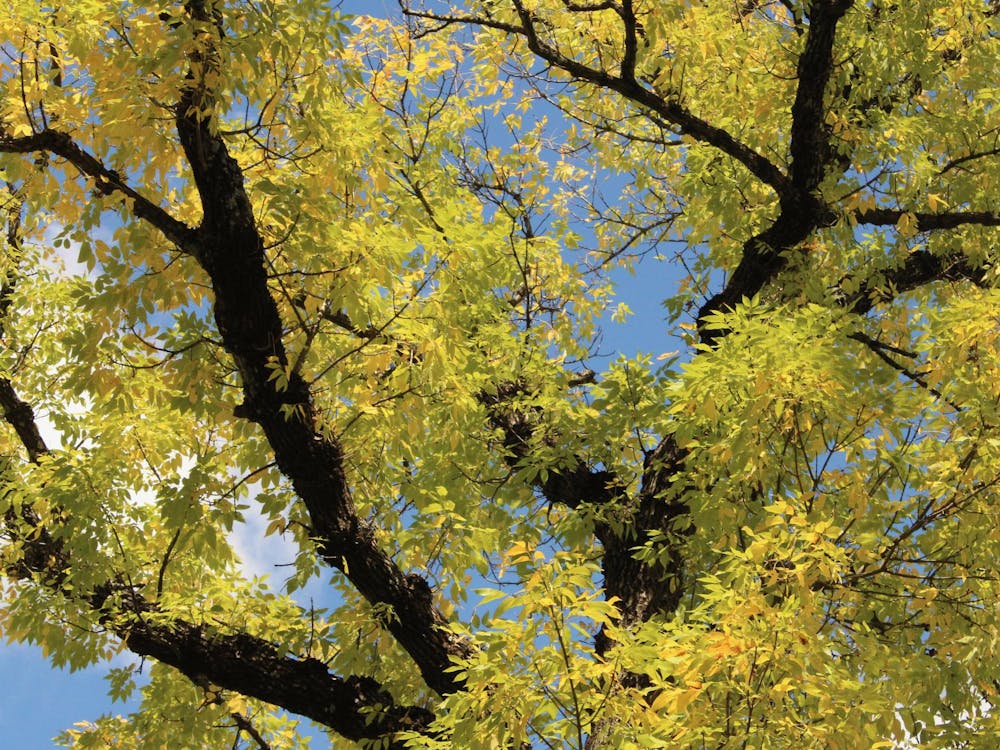WEDNESDAY'S Washington Post proved that America does have a culture. The story "Protests Delay WTO Opening" had many memorable images, but this was one of its best: "While the streets swirled, many businesses remained open; people sipped cappuccino behind the glass of gourmet coffee shops."
The story referred to Monday's scene in Seattle, site of the World Trade Organization's 1999 conference. Protesters gathered in the streets and marched to the city's center, managing to delay the opening ceremonies. The demonstration was peaceful overall, and continued throughout the day, despite a window-breaking rampage by a small, unidentified group dressed in black. Eventually, unarmed members of the National Guard arrived to break up the party, but not before the protesters had gotten their message across.
When people say America has no culture, they aren't looking hard enough. Outward signs of America's culture are mixed and difficult to pin down, but are the result of several basic ideas. The protests in Seattle give us a rare occasion to see those basic ideas in action.
Free speech - it's part of the First Amendment of our Constitution and the first right used by these protesters. People spoke out against capitalism, big business, China's aggression toward Tibet, child labor and even government, with little to no interference.
Part of the protest was against the secrecy of the WTO - people claimed that the organization keeps its deals quiet so that sweatshops can stay open and small children can continue to take America's jobs. In a culture of 24-hour news talk channels and up-to-the-minute satellite coverage, Americans can't stand secrecy. We're also skeptical when it comes to government and big business, and some see the WTO as the worst combination of the two.
Every local TV station and some national ones had continuing live coverage of the demonstrations. As well they should; the scene was a ratings dream. Middle-aged types could live vicariously through the young protesters and recall their own activities of the '60s, action-lovers were riveted by the spurts of violence, and drama-watchers could sob over the chained-together martyrs arrested for their cause.
But what really was being said? Chances are many people will remember that there were rallies in Seattle at the turn of the millennium, but they won't understand what the protests were about.
In fact, it seems that some of the protesters don't really know what they're protesting against. Take, for example, the claim that free trade will hurt American jobs and American products. This implies that countries compete against each other the way soccer teams do. Countries are rarely that organized. Businesses compete against other businesses - foreign or domestic - to make their product the best available. Our spirit of capitalism (another vital part of American culture) should encourage the advances made by such competition.
Other countries don't have our labor laws and can offer cheaper service, but American workers can compete in different areas. Most have better training and can function in higher-paid, more technical positions. Free trade also helps American businesses by making import of raw materials cheaper. With more materials and lower overhead, companies can hire more workers to produce a less expensive product, benefiting everyone. Newsflashes and fanatics rarely do this kind of explaining, even though explanation is essential to understanding the issues. We need to change our culture if we value shock journalism over real exploration of the issues.
In the meantime, however, the protest was one heck of a party. The Post reports that people dressed as "pigs, turtles, clowns, Superman, vegetables, fish, and butterflies ... music from street sound systems blared; some demonstrators danced like they were in a disco." We've learned from our '60s brethren - if you're going to protest, at least do it right.
Some have not learned, however. The violent elements in the crowd ruined the fun for the peaceniks. Their acts were the ones that brought the tear gas and the National Guard, and on Wednesday, police were much more aggressive in stopping the protesters before they got close to the conference. Many of the protesters not only were speaking out against the violence that marred the demonstration, they were helping clean up. Wednesday's Post quoted demonstrator Kevin Golden as saying, "I love my city and want to keep it clean" as he helped scrub graffiti off walls. This sort of responsibility should come with a culture of openness, freedom of expression, and the citizen's voice in government, and we should frown upon the violence that occurred.
And what of those calmly sipping their cappuccinos while watching the turtles and butterflies dance in the streets? Louise Avery, who works in a mall near the demonstrations, told the Post that she was "learning more about the WTO every day." We can learn a lot too, about trade, the real issues behind it, and even a little about ourselves.
(Emily Harding's column appears Fridays in The Cavalier Daily.)






